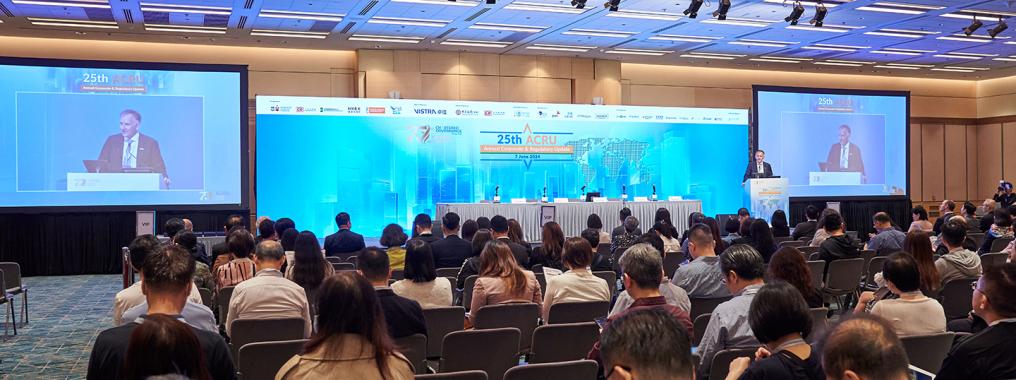This month’s interview in the NextGen series is with Jacob Wang, Deputy General Manager, Business Management Department, Chu Kong Shipping Enterprises (Group) Co Ltd.
What is your current role and what was your career path to this role?
‘I majored in international shipping and transport logistics. After graduation, I joined a red chip listed company that mainly provides terminal logistics and waterway passenger transportation services in the Greater Bay Area. At first, I was responsible for business operations and management. I was later transferred to the Capital Operation Department, where I was responsible for capital operations, analysis of potential M&As, research on equity incentives and more. I also assisted my manager to conduct compliance research, write reports, maintain investor relations and arrange shareholder and director meetings. I have recently been transferred to the Business Management Department.’
When did you first hear the terms ‘company secretary’ and ‘governance’? What was your impression of these terms?
‘I first heard the term company secretary around three years ago when I moved to the Capital Operation department. My manager then was a company secretary. She was very professional and had high expectations for me. I soon realised company secretaries are part of senior management and require extensive professional knowledge and experience. As for corporate governance, I only began to understand it through work. To do a good job in corporate governance, we need to coordinate the relationships between different interested parties, which is not an easy task.’
What qualities do you think are needed to be a successful governance professional?
‘A successful governance professional needs to be an all-rounder. At the professional level, you may need knowledge of accounting, law or finance. You need to have good communication skills, as well as good coordination and management skills, and you also need to understand how capital operates. At the operational level, you should be a diplomat for a listed company and maintain a good image of the company externally. You should also be a risk officer, participate in directors’ meetings and make reasonable suggestions. At the same time, you need to understand investors from their perspective and to help solve their problems.’
What was your chosen route to complete the Institute’s qualifying programme and what advice would you give to people who are considering qualifying as a Chartered Secretary and Chartered Governance Professional?
‘I'm not very good at taking exams, so I chose to take a part-time master’s degree accredited by the Institute, where I could feel more supported. This does not take up a huge amount of my time, plus I have the opportunity to make friends with some like-minded people – we can motivate each other, make progress together and build up a network of connections. I encourage everyone to continue learning as the scope of corporate governance is vast. Explore different fields, expand your horizons and pursue knowledge in such relevant areas as anti–money laundering, sanctions compliance and valuation analysis. These may become useful in your daily work.’
As a member of the younger generation, how do you think governance will evolve in the future?
‘As global governance trends becomes increasingly stringent, there is an urgent need for companies to transform and there will be a greater demand for talent. I believe that in the future more companies will not only comply with regulators’ governance standards, but will regard compliance regulations as the lowest limit and will view long-term development as the core focus of the company. Corporate governance is not simply about the compliance requirements of a company, but is a responsibility to society. Companies should not only focus on profit, but also pay attention to environmental protection and social responsibility. Good corporate governance can promote the healthy development of our entire society, which is a very important field of work.’
I encourage everyone to continue learning as the scope of corporate governance is vast
Jacob Wang
Deputy General Manager, Business Management Department, Chu Kong Shipping Enterprises (Group) Co Ltd
本月新一代治理系列采访的是珠江船务企业(股份)有限公司经营管理部副总经理王嘉先生。
请问您目前的职位是什么?能告诉我们您的职业发展经历吗?
‘我之前学的专业是国际航运及物流管理,毕业之后,加入一间主要提供大湾区港口航运物流和水路客运服务的红筹上市公司。一开始我在业务部门,负责业务的操作、管理,后来调往资本运营部任职,负责资本运营、收购标的公司分析、股权激励研究等工作,同时协助上司进行合规方面的研究、撰写报告、维持投资者关系、安排股东大会和董事会。 最近调到了经营管理部。’
您第一次听到 ‘公司秘书’或 ‘公司治理’是什么时候?您当时对这些专业名词有什么印象?
‘我第一次听到公司秘书是在大约三年前,当时我转到新部门工作,直属上司是公司秘书,她非常专业,对我的期望很高。不久以后,我了解到公司秘书属于高级管理层,需要丰富的专业知识和经验才可以胜任。至于公司治理,我也是透过工作才开始慢慢了解。要做好公司治理,需要协调不同的利益相关方之间的关系,这并不容易。’
您认为成为一名成功的治理专业人士需要具备哪些素质?
‘一名成功的治理专业人士需要是一个多面手。专业层面, 你可能需要财务、法律、金融等方面的知识。你需要有良好的沟通、协调以及管理能力,了解资本运作的方式。操作层面,你要做上市公司的外交官,对外保持公司的良好的形 象;还要作为风险官,参加董事会,提出合理的建议;同时也能站在投资者的角度理解他们,帮助解决他们的问题。’
您完成公会的资格计划的路径是怎样的?对于那些有想去成为特许秘书和公司治理师的人,您有什么建议?
‘我不大擅长考试,所以选择修读公会认可的兼读硕士学位课程。一方面需要的时间比较少,另一方面也可以认识多一点志同道合的朋友,彼此督促、一起进步,也积累一 些人脉。我鼓励大家保持不断学习的心态,公司治理的范围广阔,要多方面去学习,扩大自己的视野,了解如反洗钱、制裁合规、估值分析等相关知识,这些对你日常的工作都可能有帮助。’
作为年轻一代的一员,您认为‘治理’将来会如何发展?
‘随着治理要求越趋严格,公司有转型的迫切性,对人才会有更大的需求。我相信未来更多公司将不仅只是符合监管机构的治理标准,而且会将合规指示视为最低要求,以长期发展作为公司重点。其实公司治理并不只是公司的合规要求,更是对社会的责任。公司不应只追求盈利,也要关注环境保护、社会责任等。做好公司治理,可以促进整 个社会的良性发展,是非常重要的工作领域。’
我鼓励大家保持不断学习的心态,公司治理的范围广阔,要多方面去学习
王嘉先生
珠江船务企业(股份)有限公司经营管理部副总经理



